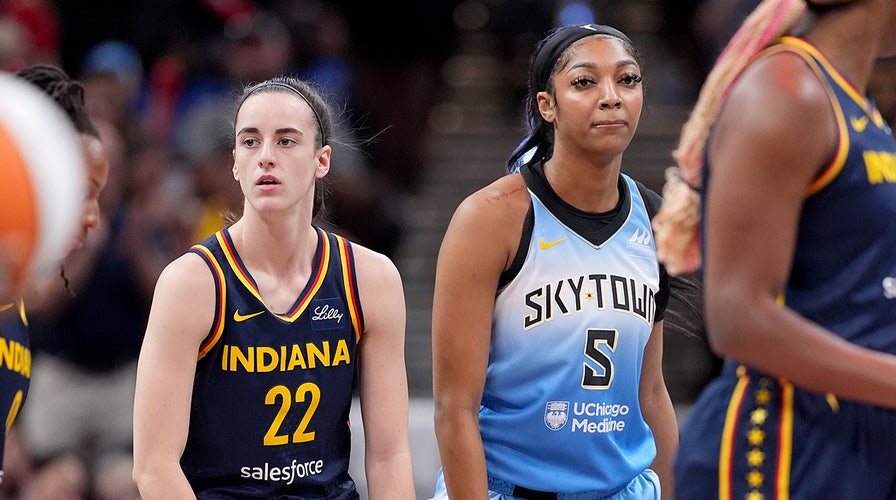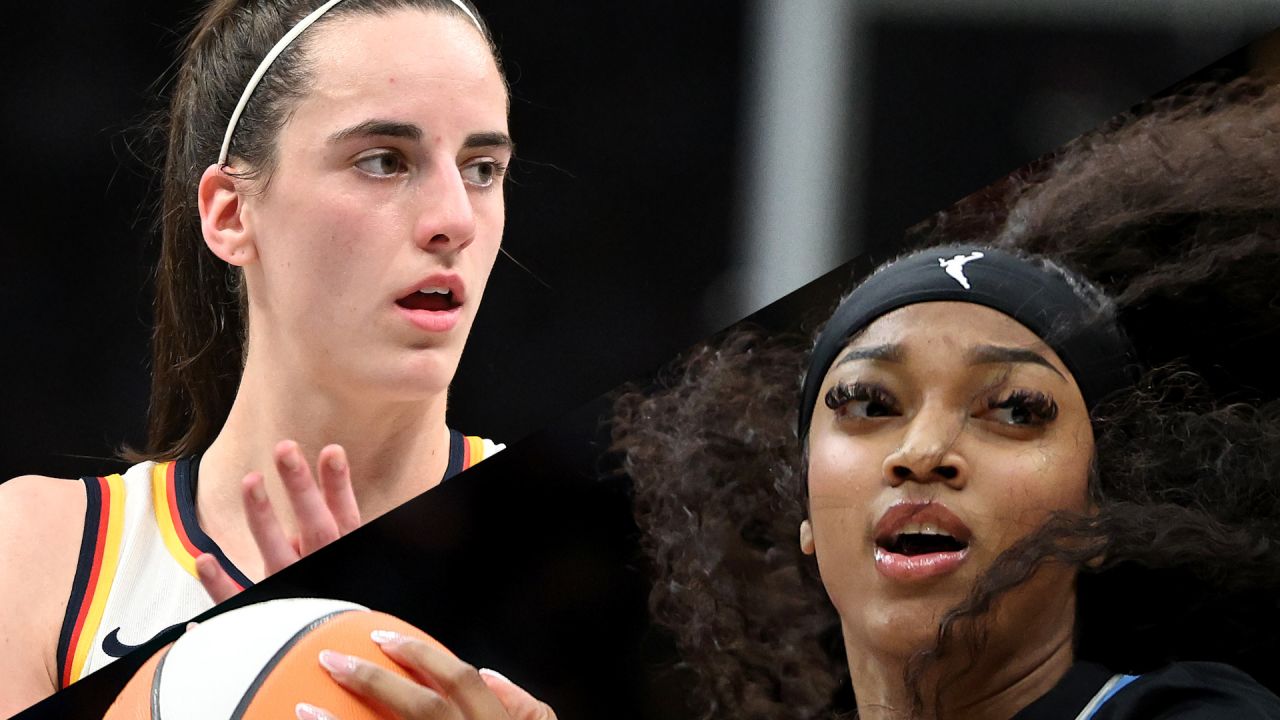In a stunning development that has shocked the world of women’s college basketball, Caitlin Clark’s games are being moved to NBA arenas for the remainder of the season. This monumental decision by the NCAA is being hailed as a major milestone in the sport, but not without its share of controversy. Among those feeling the sting of this move is Angel Reese, the star player for the LSU Tigers and Clark’s fierce competitor. As the spotlight shifts toward Clark, Reese’s reaction has ignited a storm of conversation about competition, recognition, and the future of women’s sports.
The Rise of Caitlin Clark
Caitlin Clark, the sensational guard for the Iowa Hawkeyes, has been turning heads for the past few seasons with her electrifying performances on the court. Known for her impressive scoring ability, court vision, and leadership, Clark has been dubbed the future of women’s college basketball. This season, her remarkable play has solidified her as not just a potential No. 1 pick in the WNBA draft, but also as a symbol of the growing prominence of women’s sports.
Clark’s achievements have transcended the traditional bounds of women’s basketball, with her games consistently drawing massive crowds and national attention. She has become a household name, with fans flocking to watch her play, hoping to witness history in the making. Her ability to fill arenas and captivate audiences with her on-court brilliance is a rare feat, which is why the NCAA’s decision to move her games to NBA arenas seems to be a logical next step in her meteoric rise.
Angel Reese’s Envy: A Competitive Rivalry
However, this shift in focus has left many feeling sidelined, particularly Angel Reese, who has been Clark’s primary rival throughout the season. Reese, the standout forward for the LSU Tigers, has been an absolute force in her own right. Her dominance in the paint, her defensive prowess, and her ability to score in clutch moments have made her one of the most valuable players in the NCAA.
Despite her achievements, Reese has found herself overshadowed by Clark’s ever-growing legacy. While both players have had incredible seasons, the media and fan attention has overwhelmingly favored Clark. The NCAA’s decision to move all of Clark’s games to NBA arenas has only amplified Reese’s frustration.

“I’ve been putting in the work, too. I’ve earned every bit of recognition I’ve gotten, but it’s hard to watch someone else get all the spotlight,” Reese confided in a recent interview. “I know Caitlin Clark is amazing, but this decision feels like the NCAA is already handing her the crown before the season is even over.”
Reese’s frustration is not just about personal accolades, but about the broader implications of this shift. The move to NBA arenas is seen by many as a recognition of Clark’s larger-than-life presence, but for Reese, it signals that the competition in women’s basketball is already being decided before the final games are played. “It’s not just about Caitlin; it’s about all of us,” Reese explained. “There are so many women working hard to push this game forward. Why should one person get all the credit? Why aren’t we all being given the same platform?”
A Defining Moment for Women’s Basketball
The NCAA’s decision to move Caitlin Clark’s games to NBA arenas is a groundbreaking step for women’s sports. For years, women’s basketball has struggled to earn the same recognition and attention as its male counterpart. Moving these games to NBA arenas not only provides a larger stage for Clark but also sends a clear message about the increasing importance of women’s sports in the public eye.
But while this is undoubtedly a win for the visibility of women’s basketball, it also brings attention to the ongoing issue of unequal recognition. Angel Reese’s envy is a reflection of a larger narrative: the fight for fairness, recognition, and equal opportunities in sports. The truth is, there are countless talented female athletes across the country, and many of them, like Reese, feel that their hard work and accomplishments are being overshadowed by the rapid rise of Clark.

This rivalry between Reese and Clark is not just a matter of personal competition—it’s a reflection of the wider struggle for equality in women’s sports. Angel Reese is not the only player feeling the weight of this dynamic; many other athletes are watching from the sidelines, wondering when their time in the spotlight will come.
The Future of Women’s Sports: A New Era
As the NCAA moves Clark’s games to NBA arenas, it’s clear that women’s sports are entering a new era. With increased media coverage, larger audiences, and greater financial investments, the future looks bright for women in basketball and beyond. However, this progress must be accompanied by a commitment to fair recognition of all athletes, not just the ones who shine the brightest.
For Angel Reese, the fight for equal recognition is personal. But her frustration may also serve as a rallying cry for others who feel overlooked. In a world where individual success is often equated with fame and fortune, Reese’s perspective reminds us that it’s not just about the spotlight—it’s about creating a space where all athletes, regardless of their notoriety, are given the opportunity to succeed.

The rivalry between Clark and Reese will likely continue to be one of the most talked-about narratives in women’s basketball for years to come. But if Reese’s words are any indication, the shift in women’s sports may just be beginning. It’s a shift toward fairness, equality, and a recognition that all athletes, regardless of their public perception, deserve to be celebrated for their contributions to the game.
As Clark continues to break records and make history, and Reese and others continue to push the limits of their own potential, the question remains: What will it take for women’s sports to truly be recognized for their worth? The answer may lie in how we balance the celebration of individual talent with the acknowledgment of the collective effort it takes to make sports truly great.
The future of women’s basketball is bright, and it is a future that belongs to all athletes, not just the ones in the spotlight.
